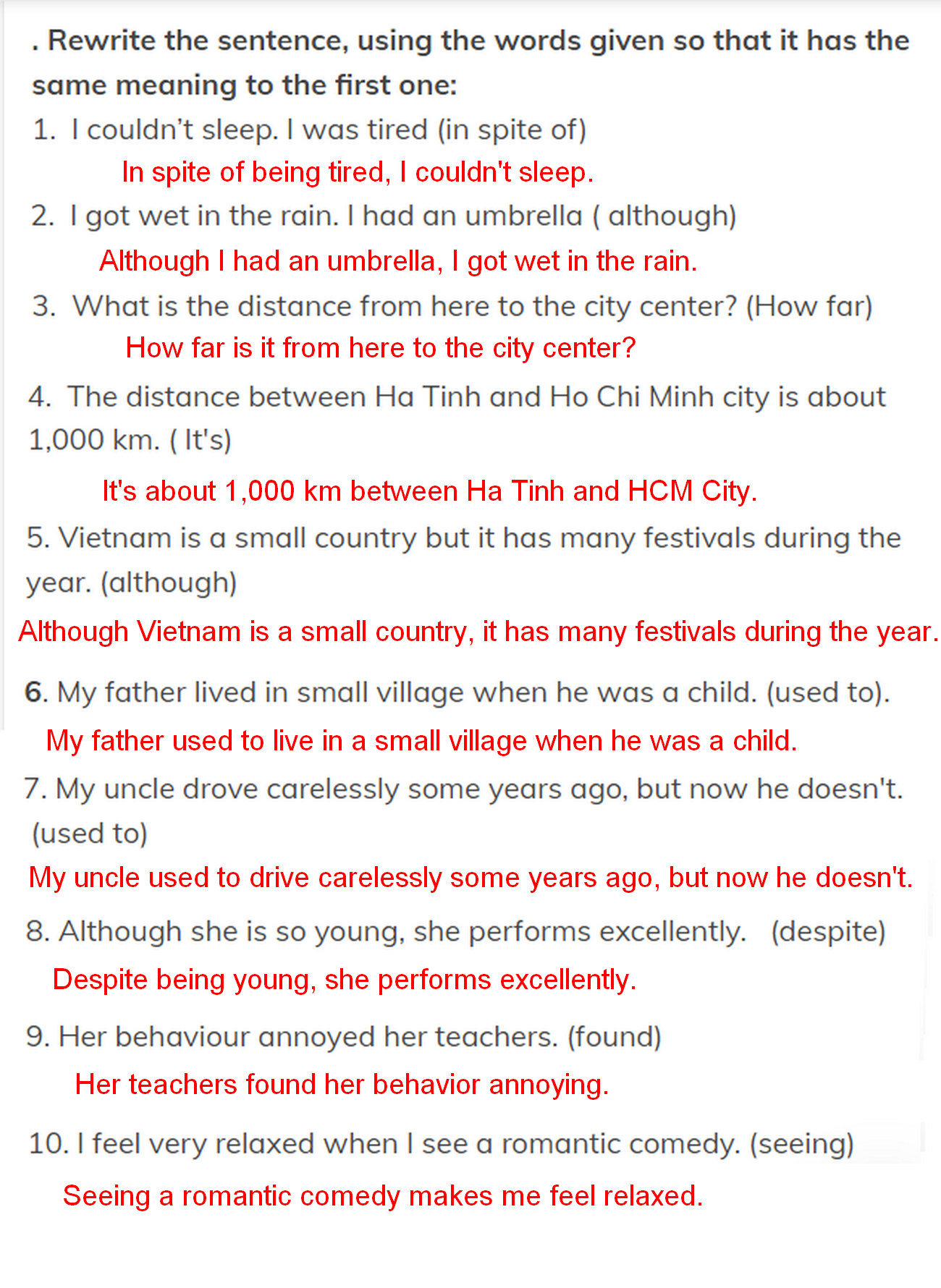Read the following passage and mark the letter A, B, C, or D on your answer sheet to indicate the correct answer to each of the questions from 36 to 42. They call Jamaica the "Island in the sun" and that is my memory of it. Of sunshine, warmth and abundant fruit that was growing everywhere, and of love. There were two sisters ahead of me in the family, and though of course I didn't know it, there was an exciting talk of emigration, possibly to Canada but more usually to England, the land of...
Đọc tiếp
Read the following passage and mark the letter A, B, C, or D on your answer sheet to indicate the correct answer to each of the questions from 36 to 42.
They call Jamaica the "Island in the sun" and that is my memory of it. Of sunshine, warmth and abundant fruit that was growing everywhere, and of love. There were two sisters ahead of me in the family, and though of course I didn't know it, there was an exciting talk of emigration, possibly to Canada but more usually to England, the land of opportunity. I guess that plans were already being made when I was born, for a year or so later my Dad left for London. Two years after that my mum went as well and my sisters and I were left in the care of my grandmother.
Emigrating to better yourself was a dream for most Jamaicans, a dream many were determined to fulfill. Families were close and grandmothers were an important part of the family. So, when the mass emigrations began, it seemed perfectly right and natural for them to take over the running of families left behind.
Grandmothers are often strict, but usually also spoil you. She ran the family like a military operation: each of us, no matter how young, had our tasks. Every morning, before we went to school, we all had to take a bucket appropriate to our size and run a relay from the communal tap to the barrels until they are full. My sisters had to sweep the yard before they went to school. My grandmother would give orders to the eldest and these were passed down- as I got older I found this particularly annoying! But I can tell you, no one avoided their duties.
My Dad came over from England to see how we were getting on . He talked to us about the new country, about snow, about the huge city, and we all wanted to know more, to see what it was like. I didn't know it at that time., but he had come to prepare us for the move to England. Six months later my grandmother told me that I was going to join my parents and that she, too, was emigrating.
London was strange and disappointing. There was no gold on the pavements, as the stories in Jaimaica had indicated. The roads were busy, the buildings were grey and dull, with many tall, high-rise blocks. It was totally unlike Jamaica, the houses all small and packed close together. In my grandmother's house I had a big bedroom, here I had to share.
Then came the biggest shock: snow. While flakes came out of the sky and Dad smiled, pointed and said: "That's snow!" I rushed outside, looked up and opened my mouth to let the flakes drop in. The snow settled on my tongue and it was so cold that I cried. My toes lost all feeling. As my shoes and socks got wet and frozen, there came an excruciating pain and I cried with the intensity of it. I didn't know what was happening to me.
When the writer first went to London, he was disappointed because ________.
A. it was smaller than he expected
B. he had been given a false impression of it
C. he had to spend a lot of time on his own
D. his new surroundings frightened him


Heading home - Alan Walker
=)
bạn không cần như này đâu, chỉ cần viết lời nhạc rồi search google thì nó sẽ tìm bài hát cho bạn